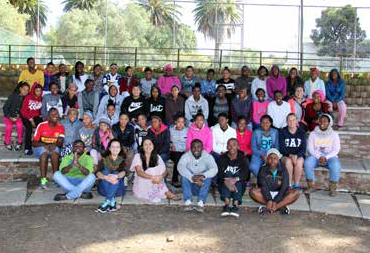
Description of the project: This small scale project (70 beneficiaries) focuses on experiential learning, peer-to-peer mentorship and hands-on field visits, fostering curiosity and learning. It aims to support the inclusion of young women in higher training for agriculture and sustainable food value chains in South Africa. It provides information about study and entrepreneurship opportunities for lifelong careers in agriculture and sustainable livelihoods; strives to remove the negative image of agriculture among the youths; takes holistic approach by providing training in basic life skills, financial literacy, sexual and menstrual health, nutrition, well-being, awareness about abuse of drugs and alcohol.
Climate impact: The project focuses on participants from local community and low-carbon practices. Facilitators have strong community ties and an understanding of traditional farming practices. Topics include: enhancing knowledge of local food, key environmental-climate challenges, developing skills in organic food production, composting, backyard gardening, converting raw produce into commercial food products, nitty gritties of agriculture value chain, integration of commercial farming with conservation efforts.
Gender impact: The program to empower young rural women enables them to imagine a career in sustainable food systems, build their technical skills and ignite a passion for sustainability. It strengthens young women’s agency through experiential learning, peer-to-peer mentorship, exposure to female-role models and hands-on field visits to foster curiosity. Extra care goes into consulting partner organizations and parents to avoid impact on school work; ensure safety of girls; build and maintain trust.
Scalability / replicability: The project relies on facilitators being fluent in local languages. It can be upscaled by mentoring young entrepreneur farmers as facilitators and by identifying venues for training. The model can be adjusted for immediate replication in other areas of South Africa. By building basic skills in organic farming and raising interest in sustainable agriculture careers, issues of natural resource management, food security, inter-linkages between health, wellbeing, domestic harmony, and food are addressed.